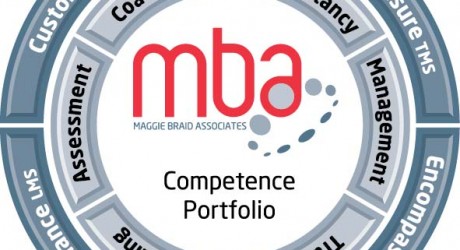THE short answer is yes, it really is necessary! The not-so-short answer is addressing the question of why. Why do we need to put our staff through what is often perceived to be a rigorous and time-consuming competence assurance process when we know they are perfectly capable of doing the job?
Health and Safety legislation is key when answering this question.
Begins a spokesperson: “For example, the Control of Major Accident Hazard Regulations 1999 (COMAH) indicates that it is no longer acceptable to make untested assumptions about staff competence.
“The Health & Safety Executive require a system in place for providing and maintaining appropriate levels of management and employee competence which should include the setting of appropriate competence standards, assessment and reassessment – with a specific link between identified safety critical tasks, roles and responsibilities and a targeted comprehensive management system.
“More recently, A Guide to the Offshore Installations (Safety Case) Regulations 2005 has been published to help people understand the requirements of the Offshore Installations (Safety Case) Regulations 2005.
“The Regulations implement the central recommendation of Lord Cullen’s report on the public inquiry into the Piper Alpha disaster: that the operator or owner of every offshore installation should be required to prepare a safety case and submit it to HSE for acceptance.”
The spokesperson continues: “The reasons behind having a meaningful competence management system however are more in depth than purely adhering to legislation. Not only is risk properly managed and performance standards maintained, but the workforce is kept current, motivated and retained enabling greater success in making sound promotion decisions.
“At this point, it may be helpful to take a step back and explain exactly what is meant by competence as this often causes more misunderstandings than it should.
“In their guidance on ‘developing and maintaining staff competence’, the HSE state that: ‘Competence is the ability to understand responsibilities and to perform activities to a recognised standard on a regular basis. It is a combination of practical and thinking skills, experience and knowledge, and may also include a willingness to undertake work activities in accordance with standards, rules and procedures.’
“This definition makes the all-important reference to standards, meaning competence is equated to an ability to perform to the expected standard.
“In the oil and gas sector, competence is a major component in ensuring reduced environmental risks and for assuring the safety of others. When we speak of competencies for oil and gas, we may immediately think of technical competencies such as those for Well Design and Construction, Well Completions, Subsea Engineering, Engineering Operations and Maintenance; however, that falls quite a long way short of providing a complete picture.
“Behaviours associated with competencies such as accountability, problem solving, decision-making, attention to detail, safety leadership and their relationship to health and safety simply cannot be ignored.
“Having understood the need for a competent workforce both in terms of adhering to legislation as well as the advantages for employer and employee alike, the next stage is to achieve and capture all the information, in other words to apply a Competence Assurance System.”
The spokesperson went on: “This assessment process measures workplace performance against a set of standards, providing critical information which enables an organisation to manage risk more effectively. By identifying the gaps between measured performance and the required standards for the job, competence assurance is essentially the link between individual performance and organisational success.
“A properly-designed Competence Assurance System will provide an auditable record of the management of competence at both the individual and organisational level whilst providing a structure and process aligning mission and safety critical competencies to business goals and objectives. It will provide an inventory of performance standards and will measure performance in the workplace against those standards; reviewing performance, identifying any gaps and determining training needs to close those gaps.
“And therein lies the reason why there is still a degree of reticence today in totally embracing the management of competency.
“It is a highly complex and involved area requiring specific expertise to achieve the desired level of competency management while maintaining a simple, effective and sustainable process. Similarly to most management systems, there is no fixed approach to managing competence that suits all organisations and so time taken to find a tailored approach is often the best way forward.”
MBA Ltd highly recommends working with a competence specialist who will be able to identify and implement the necessary processes.
MBA Ltd are unique in being able to offer the entire suite of competence management tools and services; competence development and management, competence training and competence software, all of which have been designed to complement each other and offer a complete competence solution.
PRESS RELEASE issued by Maggie Braid Associates. You too can post your story ideas for journalists (aka Press or media releases), on allmediascotland.com. Email info@allmediascotland.com for more information.
Check out twitter.com/nonstopstories.
Contact: Lisa Barnard
Phone: 01224564999
Email: lisa@maggiebraidassociates.com
Website: http://www.maggiebraidassociates






